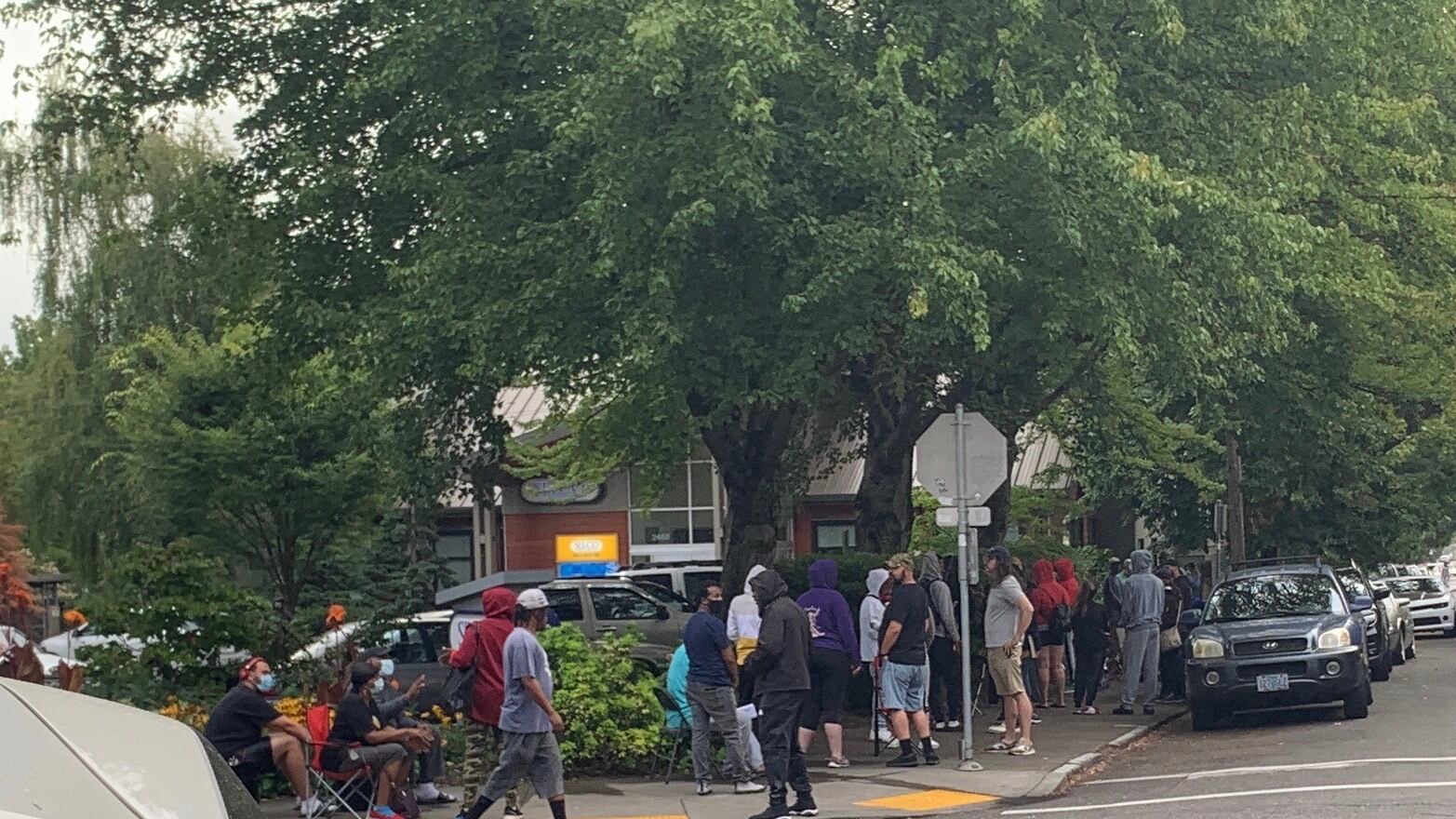I was in line when Oregon ran out of money.
In July, legislative leaders earmarked a $35 million aid package to grant 70,000 Oregonians a one-time payment of $500 each to help people "experiencing severe financial hardship" as a result of the COVID-19 pandemic.
To receive the money, you had to be over 18 years of age, an in-state resident "experiencing severe financial hardship," have earned less than $4,000 a month pre-COVID, and not have received all unemployment payments you were owed.
Although I did not meet all of these criteria, my editor asked me to go through the process in order to report on the state's system for distributing the money. That process made the waiting room at the DMV seem calmer than a Buddhist monastery.
I got in line at SELCO Community Credit Union at 2465 NW Thurman St. on Friday at 8:30 am, half an hour before it opened. Thinking I was the only one who had the brilliant plan of getting there early, I was dismayed to find more than 100 people had arrived before me.
After waiting for almost two hours, with the line barely moving, I decided to try another bank. I selected the Umpqua Bank at 1139 NW Lovejoy St. There was no line outside. Could this really be happening? Could I just walk up and get the payout?
No such luck. Umpqua used an online sign-up method and were no longer taking sign-ups because it was booked up until Wednesday, Aug. 26.
Umpqua did, however, give me a sheet of paper with the names of every bank and credit union in the state that was giving out the funds.
Unfortunately, the sheet did not have the phone numbers of the banks or whether they were going by a wait-in-line system or by online appointment. So I Googled each bank in Portland and called. Every bank's number was either disconnected or out of date, or the line was so busy the wait time was over 10 minutes.
My next move was to drive around and visit banks nearby. I visited the OnPoint Credit Union branch at 2011 W Burnside St. There I encountered an even longer line—about 150 people. I was willing to wait until I heard from the man at the back of the line that he had been there for 45 minutes and had not moved.
My last-ditch effort sent me across the Willamette River to the OnPoint Credit Union branch at 16 NE Fremont St. I parked my car and approached the shortest line I had seen all day. It was only a half-block long. Maybe this was it! By the time I'd waited 30 minutes, a line of people had formed behind me. I was inching closer to the door. But soon people in front of me started to leave.
Bank employees were turning people away because they had met the day's capacity. I was 15 people from the cutoff, but I would have to find another bank.
I went home and began thinking about ways to reach the front of the line on Monday. I would come earlier. I brought all the necessary paperwork and a lawn chair. I would pack breakfast and lunch. I was determined to get to the front. My goal wasn't to get the money but rather to observe Oregon's process of distributing the funds.
But when I logged onto my computer shortly after lunchtime, I learned that there would be no checks on Monday. In two and a half days, 70,000 people had received the money, and the $35 million was gone.
The speed with which the money ran out left me with a question: If a reporter with a car in one of the mostly densely banked parts of Oregon couldn't get to the front of the line, what was it like for people who live far from banks or credit unions or might not have transportation or a computer that informed them about the giveaway?
At a press conference Friday afternoon, Senate President Peter Courtney (D-Salem) and House Speaker Tina Kotek (D-Portland) took questions about how the program had worked.
"If we did anything wrong," Kotek said, "it's that we didn't allocate enough money for this."

